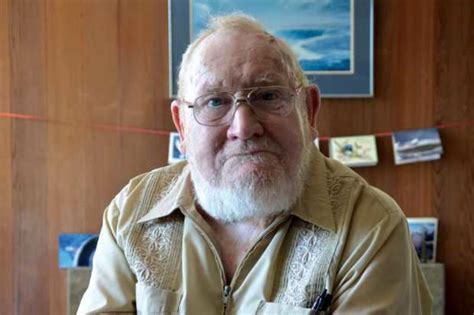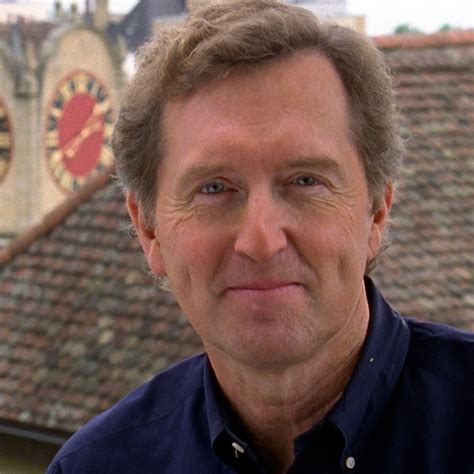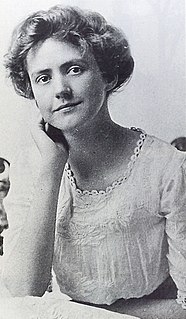A Quote by Martin Rees
Darwin and his successors taught us how our biosphere evolved, and thereby transformed our conception of humanity's place in nature. In the twenty-first century, space scientists are setting Darwin in a grander cosmic context - probing the origins of Earth, stars, atoms and the universe itself.
Related Quotes
Darwin and his successors have railed against the fallacy of confusing the current utility of a trait with the reason the trait evolved. For example, Darwin argued that skull sutures in mammals did not evolve because they facilitate live birth; the sutures were in place well before live birth evolved. Checking the chronological order in which different traits evolved in a lineage is one way to test an adaptive hypothesis; the fact of common ancestry is what makes that checking possible.
Much of the geographical work of the past hundred years... has either explicitly or implicitly taken its inspiration from biology, and in particular Darwin. Many of the original Darwinians, such as Hooker, Wallace, Huxley, Bates, and Darwin himself, were actively concerned with geographical exploration, and it was largely facts of geographical distribution in a spatial setting which provided Darwin with the germ of his theory.
For more than a century, people have often thought that the conclusion to draw from Darwin's vision is that Homo sapiens, our species - and we're just animals too, we're just mammals - that there is nothing morally special about us. I myself don't think this follows at all from Darwin's vision, but it is certainly the received view in many quarters.
A Chinese paleontologist lectures around the world saying that recent fossil finds in his country are inconsistent with the Darwinian theory of evolution. His reason: The major animal groups appear abruptly in the rocks over a relatively short time, rather than evolving gradually from a common ancestor as Darwin's theory predicts. When this conclusion upsets American scientists, he wryly comments: "In China we can criticize Darwin but not the government. In America you can criticize the government but not Darwin."
To science we owe dramatic changes in our smug self-image. Astronomy taught us that our Earth is not the center of the universe, but merely one of nine planets circling one of billions of stars. From biology we learned that humans were not specially created by God but evolved along with tens of millions of other species.
We on Earth have just awakened to the great oceans of space and time from which we have emerged. We are the legacy of 15 billion years of cosmic evolution. We have a choice: We can enhance life and come to know the universe that made us, or we can squander our 15 billion-year heritage in meaningless self-destruction. What happens in the first second of the next cosmic year depends on what we do, here and now, with our intelligence and our knowledge of the cosmos.
Let's find and remedy all our weaknesses before our enemies get a chance to say a word. That is what Charles Darwin did. ...When Darwin completed the manuscript of his immortal book "The Origin Of Species" he realized that the publication of his revolutionary concept of creation would rock the intellectual and religious worlds. So he became his own critic and spent another 15 years checking his data, challenging his reasoning, and criticizing his conclusions.
There are two questions that get to us all: Are we alone in the Universe? And, where did we come from? For me, science provides a much more satisfactory way to seek answers than does any religion I've come across. With that said, the universe is mysterious and wonderful. It fills me with reverence for nature and our place among the stars; our place in space.
Order can arise from chaos without anyone or anything directing the process when unstable combinations of atoms perish and others persist. In the 17th century, Descartes applied this insight to cosmology, and long before Darwin presented his more rigorous ideas about variation and selection, people began to speculate more openly about the origins of life and the species in Epicurean terms.
The Church demonstrated the falsity and folly of Darwin's theories by showing that they contradicted the Mosaic account of creation, and now that the theories of Darwin having been fairly established, the Church says that the Mosaic account is true because it is in harmony with Darwin. Now, if it should turn out that Darwin was mistaken, what then?
The atoms of our bodies are traceable to stars that manufactured them in their cores and exploded these enriched ingredients across our galaxy, billions of years ago. For this reason, we are biologically connected to every other living thing in the world. We are chemically connected to all molecules on Earth. And we are atomically connected to all atoms in the universe. We are not figuratively, but literally stardust.
The trails are a reminder of our insignificance. We come and go, but nature is forever. It puts us in our place, underscoring that we are not lords of the universe but components of it...So when the world seems to be falling apart, when we humans seem to be creating messes everywhere we turn, maybe it's time to rejuvenate in the cathedral of the wilderness - and there, away from humanity, rediscover our own humanity.


































